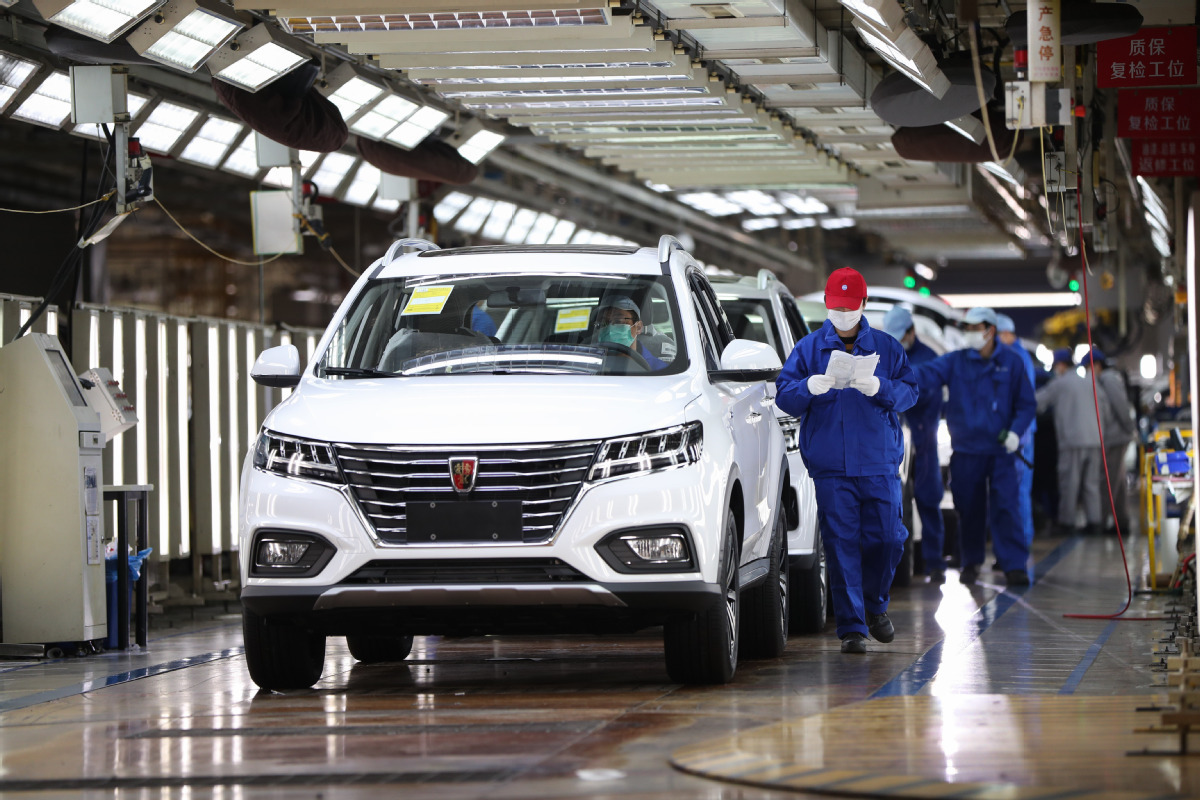When chips are down, some carmakers invest
By Li Fusheng | China Daily | Updated: 2021-04-19 09:25

Money is not everything, and carmakers are learning this the hard way: no one had expected the lack of chips would hurt them so much and for so long.
The auto industry began to feel the pinch of the chip crunch in late 2020. Industry insiders think the shortage may continue well into the second half of this year.
Consulting firm AlixPartners estimated it will cost the auto industry a whopping $60.6 billion in revenue this year.
In China, the world's largest auto market, it forced carmakers to cut production by 5 to 8 percent in the first two months of the year, according to the China Association of Automobile Manufacturers.
Yes, there is no quick fix and carmakers can do nothing but sit out the current crisis that involves mainly simpler chips. But they have learned acutely the current one will be just a prelude to a more disastrous problem if they remain passive observers.
Cars are increasingly defined by software. Automotive electronics, which may include everything from displays to in-car systems, are set to account for an estimated 45 percent of a car's manufacturing cost by 2030, according to a Deloitte report.
And Einstein's theory of relativity is playing its part here. The year 2030 is not as far away for carmakers as for us customers.
Usually, a model takes at least three years from a designer's sketch to a real one off the assembly. And the global auto industry is firing on all cylinders to go electric and smart. So far, Chinese companies are the first movers in the new race.
Last year, 1.37 million electric and plug-in hybrids were sold in China, accounting for 5.4 percent of total vehicle sales in the country. The figure could reach at least 1.8 million this year, according to the CAAM.
Functions like automatic parking previously found only in luxury cars are becoming available in volume brand vehicles.
That is why, major Chinese carmakers from SAIC to Geely are rushing to scale up their investment in local startup chip companies, which are mainly focused on semiconductors with higher processing capacities required in e-mobility, smart cabin functions and autonomous driving.
SAIC, China's largest carmaker by sales and partner of Volkswagen and GM, now has stakes in at least 10 chip companies in the country, including Beijing-based Horizon Robotics that vows to compete with Nvidia in coming years.
To be sure, it will take much time and money for those startups to hone the skills and take on global giants, and it is highly probable that international chipmakers will remain those carmakers' first choice for quite a while to come, by when the startups are expected to be capable of producing enough chips to ship.
That said, I must acknowledge here that Chinese carmakers' logic is simple and crystal clear: a bird in the hand is worth two in the bush.
Clearly, the current chip crisis has packed in some wisdom for carmakers. As bush birds disappear right in front of them, leaving them helpless and floundering, they seem to be regretting why they had not done something about chips earlier.























